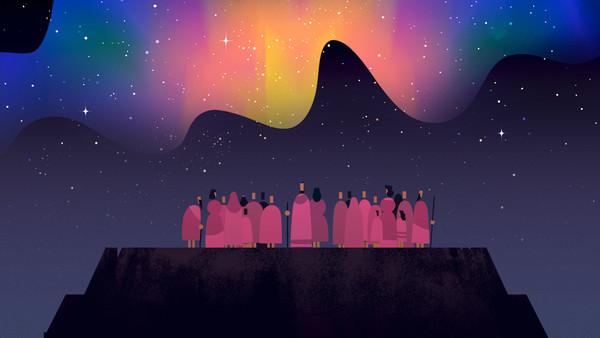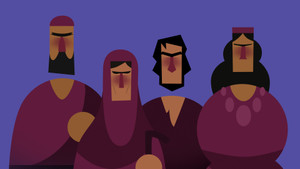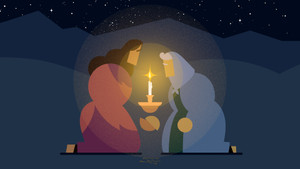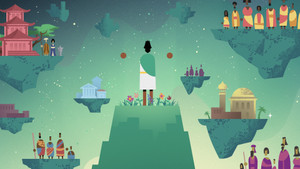

Visual Commentary: Exodus 34:6-7
The list of God’s character traits found in Exodus 34:6-7 is the most repeated and re-quoted text in the Bible. But what does it mean when God describes himself as compassionate, gracious, slow to anger, and overflowing with loyal love and faithfulness? Understanding the significance of these Hebrew words will bring God’s character into clearer focus.
Reflect
Take time to read Exodus 34:6-7 aloud together and then write down the passage, each in your own handwriting. Then write it again using your own words.
Notice the way Exodus 34:7 begins the way it ends. How does God’s loyal love relate to his justice?
Underline the five characteristics of God named in Exodus 34:6 and then circle repeated words and concepts that we notice in Exodus 34:6-7. What do you observe about the repetitions and structure?
Take time to discuss other themes, questions, or key takeaways from what you learned together.
Keep Exploring
Downloads
Next Episode

Episode 2
Compassion
Character of God Word Studies

Episode 1
Visual Commentary: Exodus 34:6-7

Episode 2
Compassion

Episode 3
Grace

Episode 4
Slow to Anger

Episode 5
Loyal Love

Episode 6